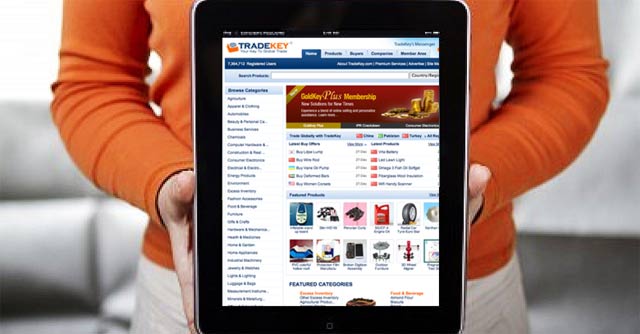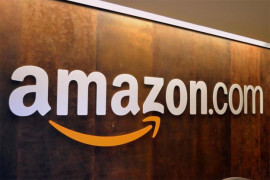
KARACHI:
The IT industry may be abuzz with negative news coming out of TradeKey.com (TK), but the online business-to-business (B2B) marketplace for international trade is gearing up for a fresh round of funding and even eyeing a valuation of $1 billion — a feat none of the local start-ups have achieved so far.
“We will easily get that [billion-dollar valuation],” TK’s Chief Executive Officer Junaid Mansoor told The Express Tribune in a recent interview, refuting market talks that the company was bleeding money and heading for bankruptcy.
Growing market: TCS looks to tap into e-commerce segment
One of the most successful internet-based companies originating from Pakistan and a fully-owned subsidiary of Saudi Arabia’s Al Amhar Group of Companies, TK got the industry’s attention after it fired 250 employees this year alone under pressure from its Saudi parent, which stopped pumping money into the business.
Further investigation reveals about 50 officials including some top managers also resigned this year — reducing the company’s workforce by more than a half from the peak of 500. The word on the street is it might even shut down.

Least bothered about market speculations, a confident Mansoor seems to be focused on his future strategy. The company, according to him, will be able to achieve a valuation of $1 billion or more in the second round of funding it is currently preparing for. This optimism is partially driven by the company’s internal valuation and new research and development (R&D) projects, ready to be launched.
The encouraging future of e-commerce in Pakistan
“We have our search engine optimisation (SEO) system developed but we are waiting for the funds,” Mansoor said, adding that the company wants to raise more than $100 million.
The company will use the money to expand in China, a major market for B2B players and home turf of its main rivals, the likes of Globalsources.com that earns $450 million in annual revenues. “We will compete with top four in the short term, excluding market leader Alibaba.com,” Mansoor said.
If history is any guide, these targets may not be completely out of question for the tech guru who has guided the company to success before. Considered a darling of Pakistan’s IT sector, the company did exceptionally well to become the world’s second largest B2B portal and even gave China-based Alibaba.com a run for its money, receiving a third-party valuation of $700 million in 2011.
Pakistani entrepreneurs launch ‘Uber for rickshaws’
However, market experts are sceptical whether Mansoor can do it again despite the challenges his company has been facing since 2011.
To better understand the subject, The Express Tribune spoke to nearly half a dozen former employees who left the company at different stages in the last three years and a few IT experts who say the TK suffered a massive loss after Google revised its SEO policy in February, 2011 –known as Panda in the world of IT.
The internet giant had changed its search algorithm to remove shallow and low-quality content from its top search results. It was a major blow to the company, which featured in almost every third-party index of worst-hit companies following this change.
No entry for Pakistan in Ebay, Amazon and Paypal
According to Searchengineland.com, the company’s traffic reduced by 89% and it ended up among 25 companies whose online visibility reduced dramatically. In a couple of days alone, the company lost its key word ranking by 56% or 21,096 positions.
A notable online presence is the lifeline for businesses like the TK that need to be on top of the search engine because of their global customer base, said an expert. “The company lost up to 60% of its revenue because of Panda.”
“Internet-based businesses can’t make money unless they have big traffic,” said another expert pointing towards the company’s current rank, which is 1,31,299th, according to Alexa.com.
No Amazon? No problem for Pakistan’s e-commerce pioneers
As If that wasn’t enough, a 2013 court ruling in favour of four popular brands –Dunhill, Chloe, Montblanc and Panerai – did further damage to the TK’s credibility in the United States, accusing it of direct and contributory trademark infringement and counterfeiting.
The market talk is that the TK continues to be in trouble but Mansoor remains optimistic about the company’s future and says he has taken several measures to put it back on growth track.
Besides revamping his workforce and developing an advanced SEO system, the company has stopped accepting small home-based businesses and put stringent controls over legal and fraud compliance. They are now “accepting companies with history”. They claim to have removed junk traffic.
Digital money: Paypal jumps 5.42% in first trades after spinoff
“Those putting replicas on B2B websites are frauds and must be dealt with accordingly,” Mansoor said. “We are happy with where Google is going.”
Justifying the recent layoffs, Mansoor said they had to meet certain financial targets before approaching venture capitalists. Local professionals lack international exposure thus take a while to understand the business, he said – another reason for downsizing. Finding the right workforce is the single biggest hindrance to his expansion plans.
“We don’t have the right people in Pakistan to materialise our R&D projects,” Mansoor said, adding the most suitable workforce for their business is in China – hinting that they may hire people in China.
“Ups and downs are part of every business. Your R&D pipeline needs to be strong. That is how you keep innovating,” Mansoor said. Though he refused to share revenue and profit figures, our findings is that the company’s latest revenue ranges between $8 million and $10 million a year.
“We are still the world’s second largest B2B portal with 8 million members,” the CEO said without giving further breakdown of its paid member-base, which constitutes a bulk of its revenues.
Of its large member base, only a small percentage (less than 1%) constitute paid members but the company has introduced more high-end products to jack up revenue. “The main worth of E-business companies is their valuation,” Mansoor said. “Revenues don’t matter as long as potential is there.”
Published in The Express Tribune, November 4th, 2015.






















































COMMENTS (62)
Comments are moderated and generally will be posted if they are on-topic and not abusive.
For more information, please see our Comments FAQ